On the morning of August 25, the opening ceremony of the 2nd International Summer School on “Operation and Control of Power-Electronics-Based Power Systems” was held at the West Main Building of Tsinghua University. Professor Kang Chongqing, Dean of the Department of Electrical Engineering and Applied Electronics (EEA), and Professor Sun Kai, Deputy Dean, attended the ceremony. This year’s summer school is jointly organized by EEA and the Control and Power Research Group at Imperial College London, with support from the Tsinghua–Imperial Joint Research Center for Smart Power and Energy Systems. The summer school focuses on cutting-edge topics in power-electronics-based power systems and aims to provide a systematic training and innovation platform for young scholars, students, and industry practitioners worldwide.
The opening ceremony was hosted by Zhang Ning, tenured Associate Professor of EEA. Dean Kang Chongqing delivered the welcome speech on behalf of the Department, extending a warm greeting to all participants.
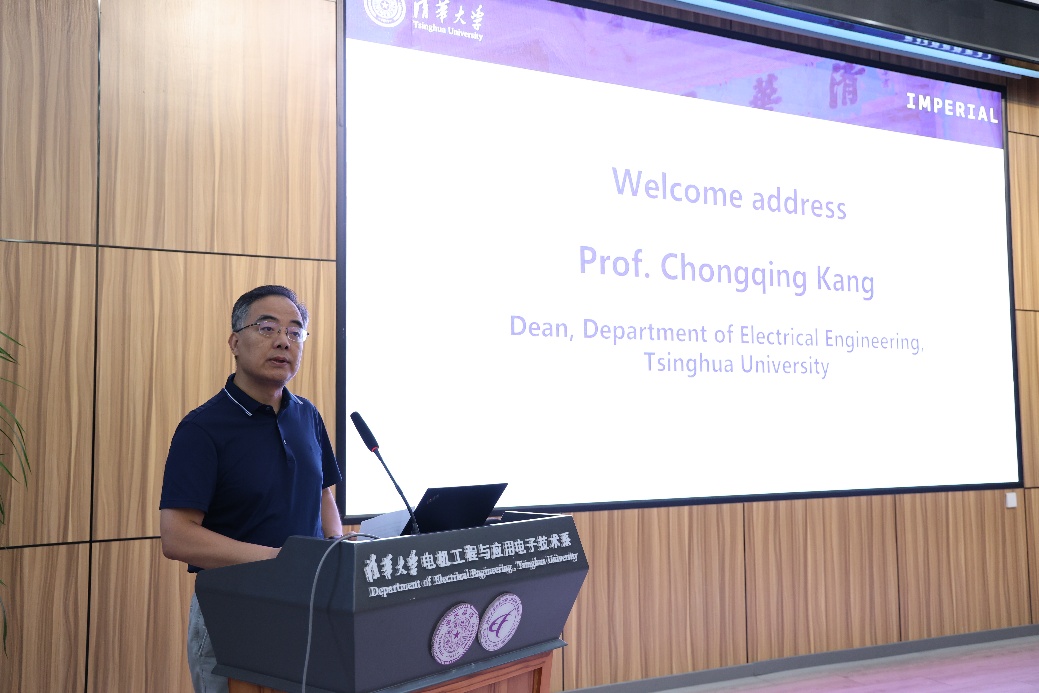
Professor Kang Chongqing delivering the welcome address
Kang Chongqing reviewed the success of the first summer school held at Imperial College London and expressed his honor that this year’s program is hosted at Tsinghua. He noted that participants come from 10 countries, totaling 80 attendees, forming a highly internationally diverse academic group. He emphasized that the global energy transition is driving the transformation of power system structures toward dominance by power electronic devices. This shift brings entirely new challenges for system modeling, control, operation, planning, and market mechanisms, requiring integration of power system and power electronics knowledge. He encouraged participants to engage actively, think deeply, and ask questions during the seven-day program, and hoped that the knowledge gained would lay a foundation for their future careers in the energy sector.
Professor Goran Strbac from Imperial College London then delivered a speech. He pointed out that the core challenge facing current energy systems is system stability. In new power systems, widespread use of inverters reduces traditional inertial support, which must be addressed by technologies such as photovoltaic converters—forming the core topic of the summer school. Professor Strbac further noted that although inverter control technology has advanced significantly, it still brings new challenges to system protection, resilience, and market mechanisms. He highly recognized the frontier and targeted nature of this year’s summer school curriculum.
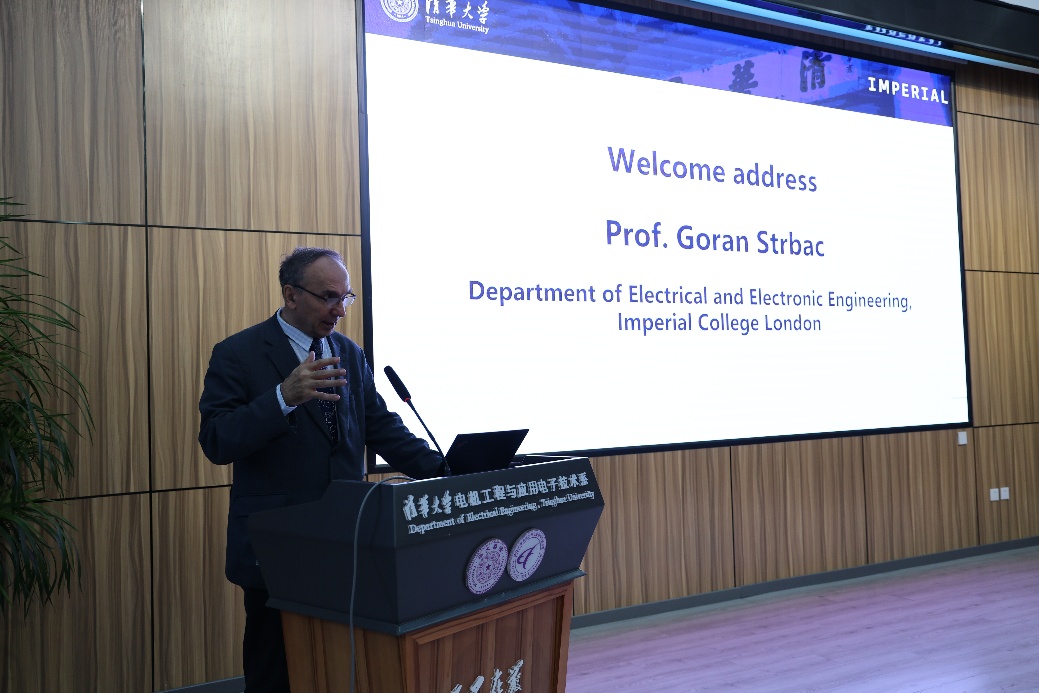
Professor Goran Strbac delivering the welcome speech
Professor Teng Fei of Imperial College London expressed gratitude to Tsinghua University, the Department, and the event team. He highlighted that since the success of the first summer school last year, the program has been committed to creating a platform for global smart grid development, bringing together experts and students to jointly address the diverse challenges of sustainable power system transformation. Professor Teng emphasized that this transformation involves not only technical issues but also multi-dimensional social aspects such as market design and organizational management. He welcomed newly joining experts and participants and encouraged full interaction and collaboration during the seven days.
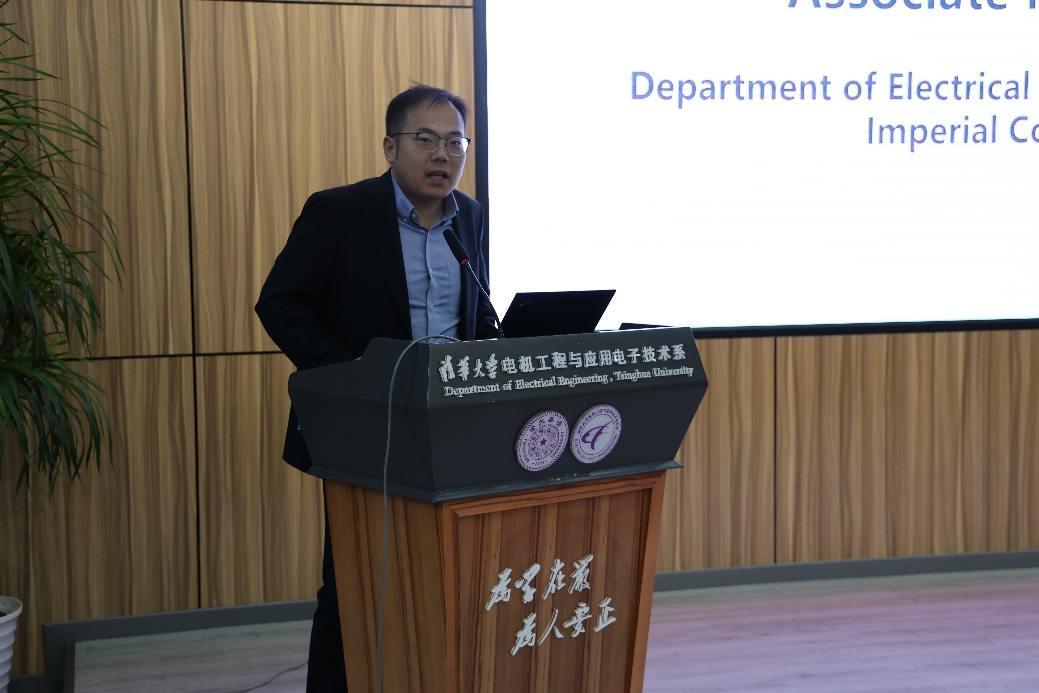
Professor Teng Fei delivering the welcome speech
Finally, Associate Professor Zhang Ning provided a brief introduction to Tsinghua University and EEA, and outlined the summer school schedule. This year’s program spans nine days, with seven days of formal courses, including 28 advanced lectures, three technical site visits, and three focused workshops, taught by 28 experts from renowned universities worldwide. Zhang also provided details on on-campus services and living arrangements.
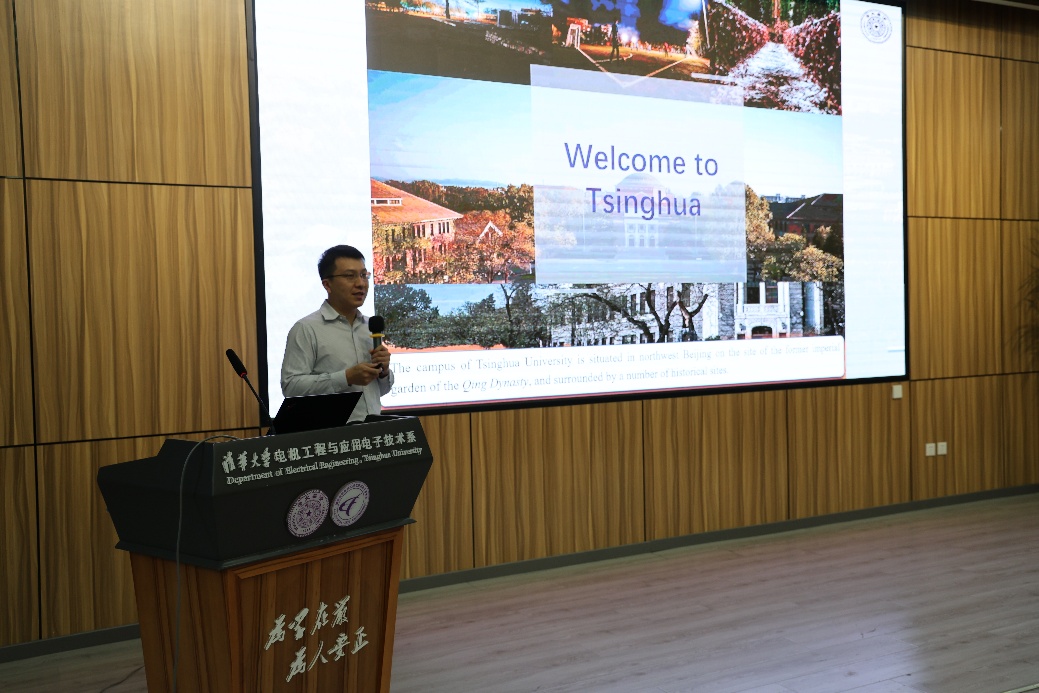
Zhang Ning introducing the summer school schedule
Participants completed registration on August 24 and, with assistance from the Department’s faculty and teaching assistants, undertook campus tours and orientation activities to prepare for the program.
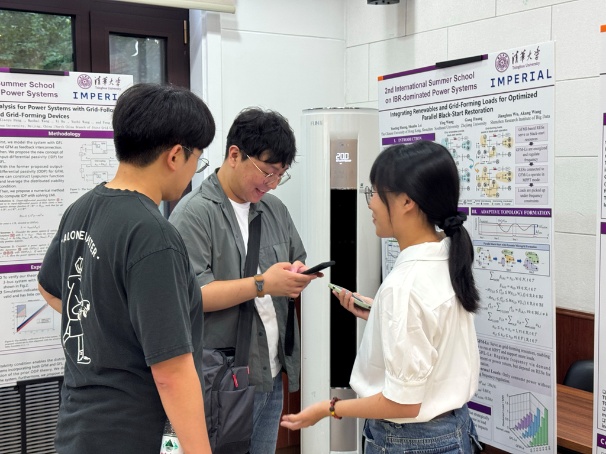
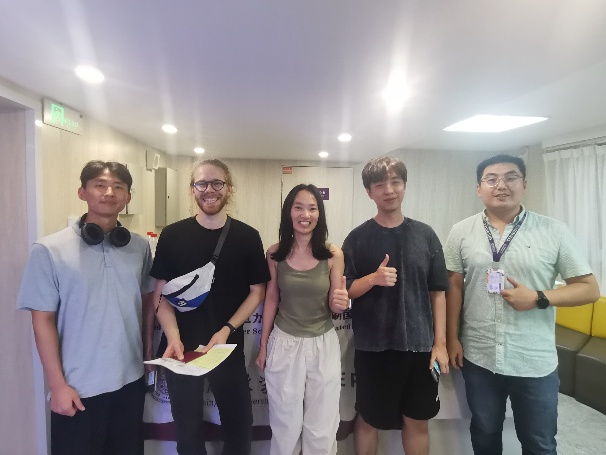
Summer school participants completing registration
By integrating advanced courses, high-level seminars, and field visits, this summer school aims to promote knowledge integration and innovative thinking, helping participants gain a deep understanding of the latest research progress and industry trends in power-electronics-based power systems, while enhancing international perspectives through cross-cultural collaboration. In response to the urgent global demand for energy transition and sustainable development, EEA leverages the international summer school platform to actively build a global educational cooperation network, foster a world-class academic exchange environment, cultivate future leaders in the power and energy sector, and inject new momentum into the sustainable development of global energy.

















 News & Events
News & Events